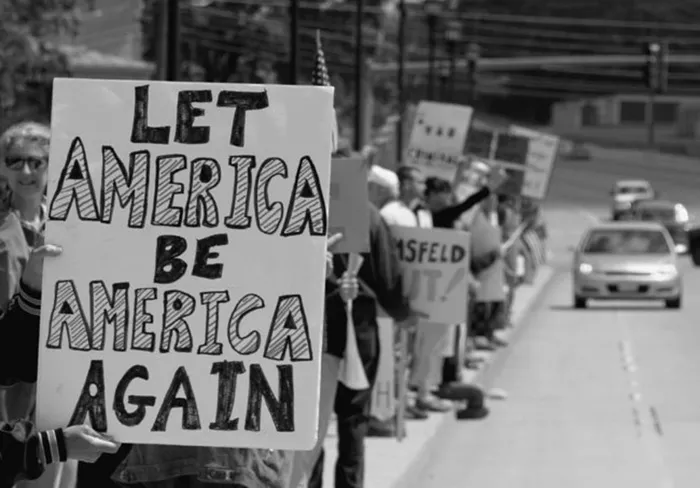Welcome to Poem of the Day – Let America Be America Again by Langston Hughes.
Let America Be America Again is a powerful poem written by Langston Hughes in 1935. The poem is a critique of the American dream, highlighting the discrepancy between America’s ideals of freedom and equality and the reality experienced by many of its people. Hughes addresses the deep inequalities and injustices that have persisted in the United States, calling for a reimagined vision of the nation—one that fulfills its promises for everyone, regardless of race, class, or background. This poem was written during the Great Depression, a time of widespread economic hardship, which intensified Hughes’s exploration of social justice and equality.
Let America Be America Again Explanation
The poem begins with a longing for America to be a place of freedom, where dreams can flourish. However, Hughes quickly reveals the harsh reality: America has not been that ideal place for everyone, especially marginalized groups such as Black people, Native Americans, immigrants, and the working class. He exposes the disillusionment that many feel, particularly those who have been oppressed or excluded from America’s promises of equality and opportunity. By the end, Hughes calls for collective action to build an America that truly represents freedom and justice for all, not just the privileged few.
Structure and Form
Let America Be America Again is written in free verse, with a conversational yet intense tone that reflects Hughes’s passion and conviction. The poem alternates between shorter, direct lines and longer, more elaborate verses, capturing both urgency and contemplation. Hughes uses a mix of rhetorical questions, repetition, and anaphora, as seen in phrases like “Let America be” and “I am the,” to emphasize his key points and drive his message. The free-verse structure allows Hughes flexibility in expressing complex ideas, giving the poem a raw, unrestrained feel that mirrors the emotions of his message.
Detailed Explanation of Major Elements
The American Dream and Disillusionment
Hughes opens with the idea of the American dream, portraying it as a place where all can live freely and equally. Yet he counters this with lines that reveal the failure of this dream for many. He emphasizes that America has not lived up to its ideals, making “America” itself almost symbolic of unfulfilled promises. Hughes repeatedly contrasts this idealized version of America with the experience of those who feel alienated and oppressed.
Voice of the Oppressed
Throughout the poem, Hughes speaks as and for various marginalized groups: the poor, immigrants, Black Americans, Native Americans, and the working class. By using first-person plural pronouns like “I” and “we,” he creates a collective voice that resonates with the struggles of many. This inclusive approach gives the poem a universal quality, as if it were a plea from all those who have been excluded from the American dream.
Hope for Change
Despite the critique, Hughes’s tone is not hopeless. He envisions a future where America can achieve its ideals if the people work together for change. Lines like “O, let America be America again” serve as both a lament and a call to action, urging readers to consider how America can become a place of true freedom and equality. Hughes believes that by acknowledging the nation’s flaws, people can work toward making it a better place.
Repetition and Rhetorical Devices
Hughes uses repetition and parallelism throughout the poem, reinforcing key ideas. The repeated phrase “Let America be” is both a statement and a plea, as if Hughes is both describing an ideal and demanding that it be realized. Similarly, rhetorical questions help guide readers to reflect on the gap between America’s promises and the reality experienced by marginalized groups. These devices add emotional weight to Hughes’s arguments, making the poem both memorable and persuasive.
Conclusion
In Let America Be America Again, Langston Hughes crafts a profound and reflective exploration of what America is versus what it claims to be. His words continue to resonate, reminding readers of the ongoing work needed to achieve true freedom and justice for all. This poem is a reminder that America’s ideals are worth striving for, even if they have yet to be fully realized.

